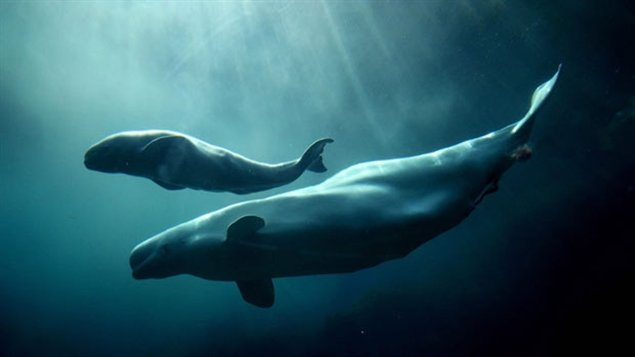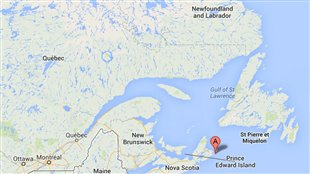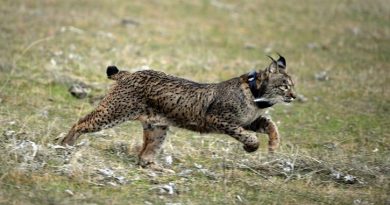Warming Arctic may be aiding the spread of disease

(Darryl Dick / The Canadian Press)
A Canadian team of scientists have discovered that pathogens have been spreading to new species and killing them, and it may be due to the warming of the Arctic.
Michael Grigg and Stephen Raverty from the University of British Columbia’s Marine Mammal Research Unit (MMRU) say that the “big thaw” occurring in the Arctic is allowing never-before-seen movement of pathogens between the Arctic and the lower latitudes.
They investigated a mass die-off of hundreds of grey seals in 2012 on Hay Island, a tiny island in the Atlantic off the east coast of Cape Breton, Nova Scotia.
They discovered that some 406 grey seals were killed by a type of hepatitis caused by a new strain of sarcosystis parasite which they are calling Sarcocystis pinnipedi, after the scientific term for seals.
The parasite was typically found in ringed seals which live much further north, but due to long exposure those seals have developed resistance to it.
Physical barrier
The researchers suggest that the Arctic has always acted as a physical barrier keeping northern and southern animals apart and preventing spread of disease. Since the ice has been melting, the barrier is removed allowing northern and southern animals to mingle and share pathogens that are new to them.
With less ice, grey seals have been expanding northward following fish stocks and are now being exposed to new pathogens to which they have no immunity or resistance.
In a presentation last week to the American Association for the Advancement of Science, professor Grigg said that the grey seals are not the only animals affected. A western Alaska Steller sea lion found dead in 2004 succumbed to the same pathogen.
There are also documented cases from 2011 to 2013, of walruses and even grizzly bears living as far south as British Columbia that fell victim, Grigg said, adding that polar bears and Hawaiian monk seals have succumbed, too.
They note the pathogen which is making its way south presents no danger to humans.
Cause for concern

However, the researchers also discovered another pathogen making its way north which is of concern to humans.
Toxoplasma gondii, has been found in beluga whales in the Canadian Beaufort Sea It is sometimes called the ¨kitty litter disease¨ because it is often spread through cat faeces.
Stephen Raverty, who is also a veterinary pathologist with the British Columbia government, has been testing hunter-harvested belugas for 14 years says the pathogen was never documented in the Arctic prior to 2006.
Toxoplasmosis can cause blindness in humans and spontaneous abortions during pregnancy
“Belugas are not only an integral part of Inuit culture and folklore, but also a major staple of the traditional diet. Hunters and community members are very concerned about food safety and security,” says Raverty,
Toxoplasma is spread mainly through consuming of undercooked meat or water that has come in contact with soil contaminated by cat faeces.
STEPHEN RAVERTY and MICHAEL GRIGG



